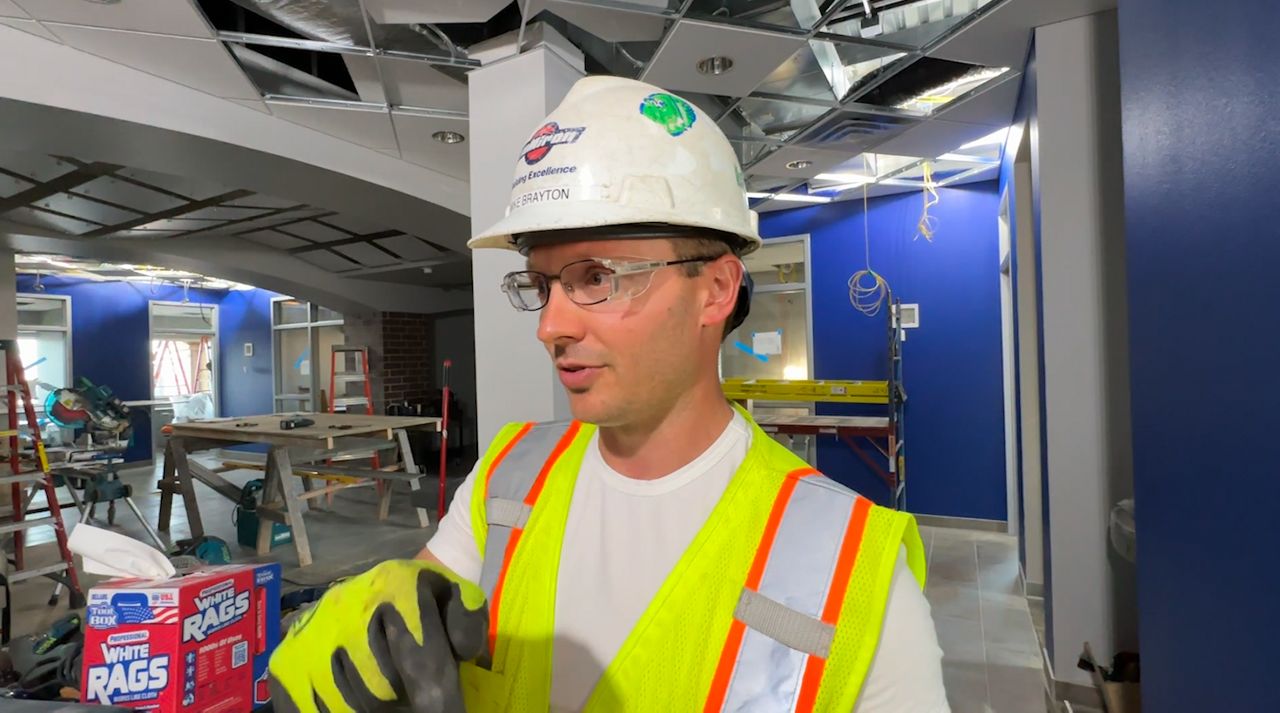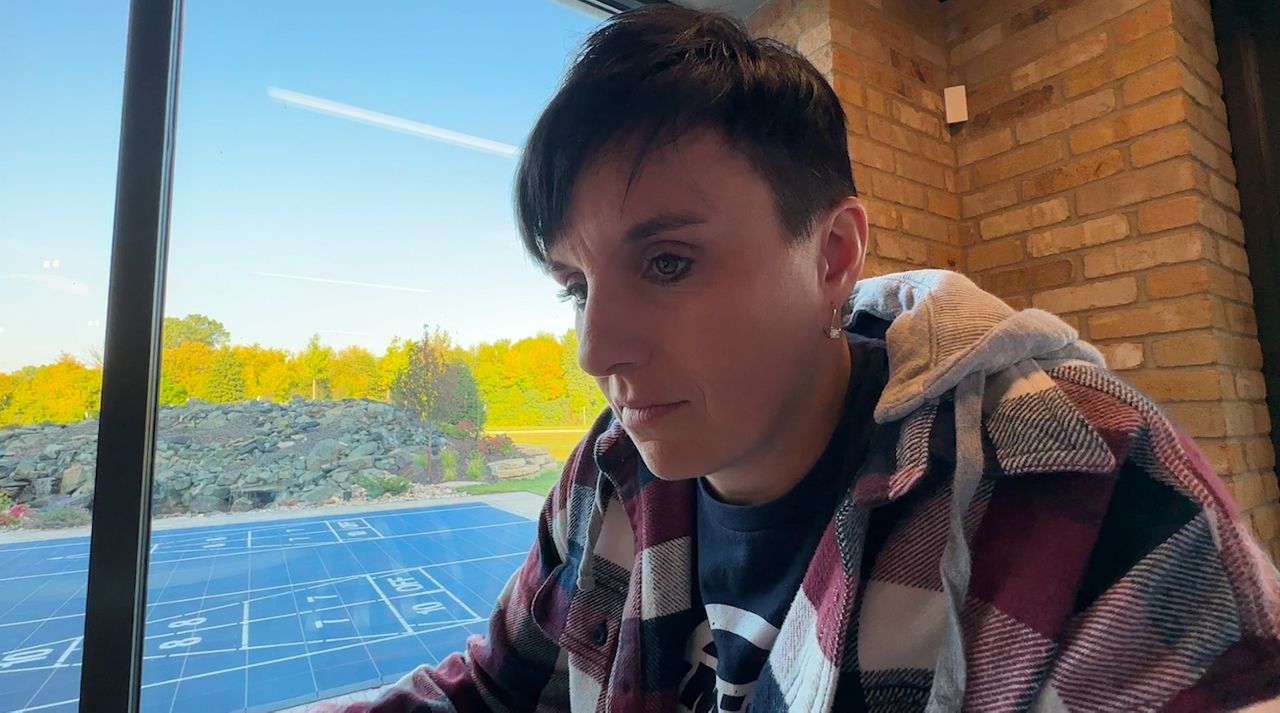DE PERE, Wis. — There were just a few days of construction left on a new CoVantage Credit Union regional headquarters building in De Pere.
Mike Brayton moved around the site, checking on some of the final details of the build.
“It’s making sure we’re taking the extra time and care to walk around the site and make sure everything is installed correctly, but also has a good aesthetic,” he said.
Brayton is a superintendent with Miron Construction.
In addition to checking in on the work, the company is also giving him a tool — known as QPR — to check in on the people working on the site.
“Having this general training on how to recognize something may be going on with an individual on the project site, spending the time, a little bit of my day, to show them they have value and listen to them,” Brayton said. “Maybe they just need that listening ear, maybe they need more. That’s when the refer comes in if they need something more than just somebody to listen to them and they need some additional help.”

Meredith Baciak is the wellness coordinator at Miron.
“QPR stands for question, persuade, refer,” she said. “It’s three simple words that when applied, can potentially save a life. We decided to install this at Miron because the construction suicide statistics are so high.”
According to the Centers for Disease Control and Prevention, men working in construction have one of the highest suicide rates, compared to other industries. Their suicide rate is about four times higher than the general population.
Baciak said part of her work to improve the industry revolves around trying to end the stigma surrounding mental health and seeking help.
“It’s just building that human connection,” she said. “It’s allowing the trainee to learn how to be bold and comfortable asking those tough questions to a tough crowd, especially in the field. How are you? How are you feeling? Males in the construction industry, most of them don’t like to share and be open. It’s really breaking down the stigma and the walls that way.”

Brayton said the training and giving coworkers someone to talk to are already making a difference.
“I’ve experienced multiple individuals, even on this project site, who have come up and just told me what’s going on in the life, and they’re really struggling,” he said. “Having training with how do deal with that — not deal with that, as in a problem — but really addressing what’s going on with the individual and helping them. As a supervisor, I’m ultimately responsible for the health of the site. That health doesn’t just include the production and getting the project completed, but the health of the employees onsite as well.”



